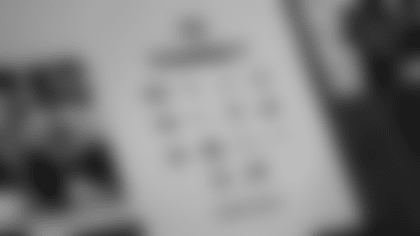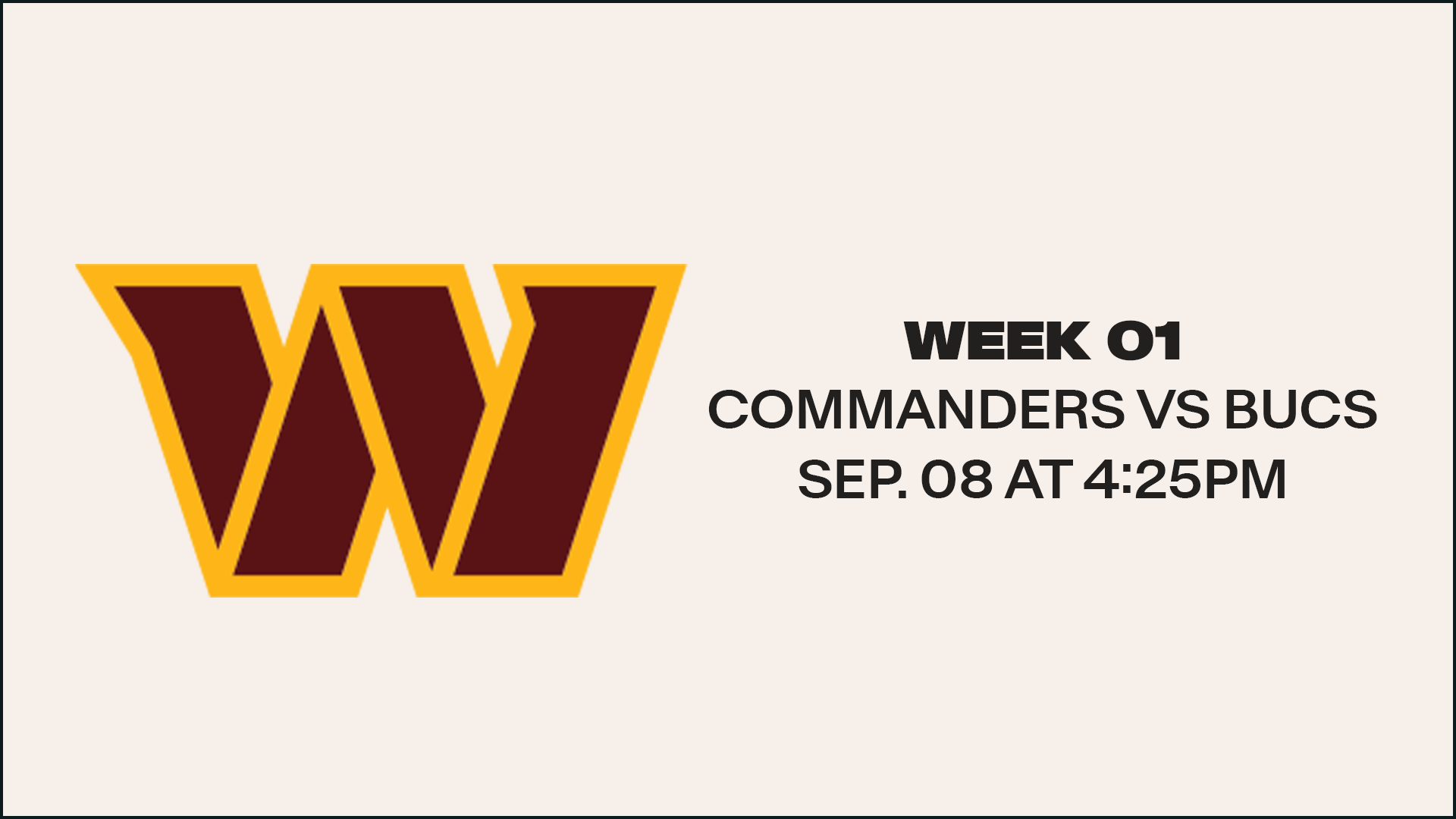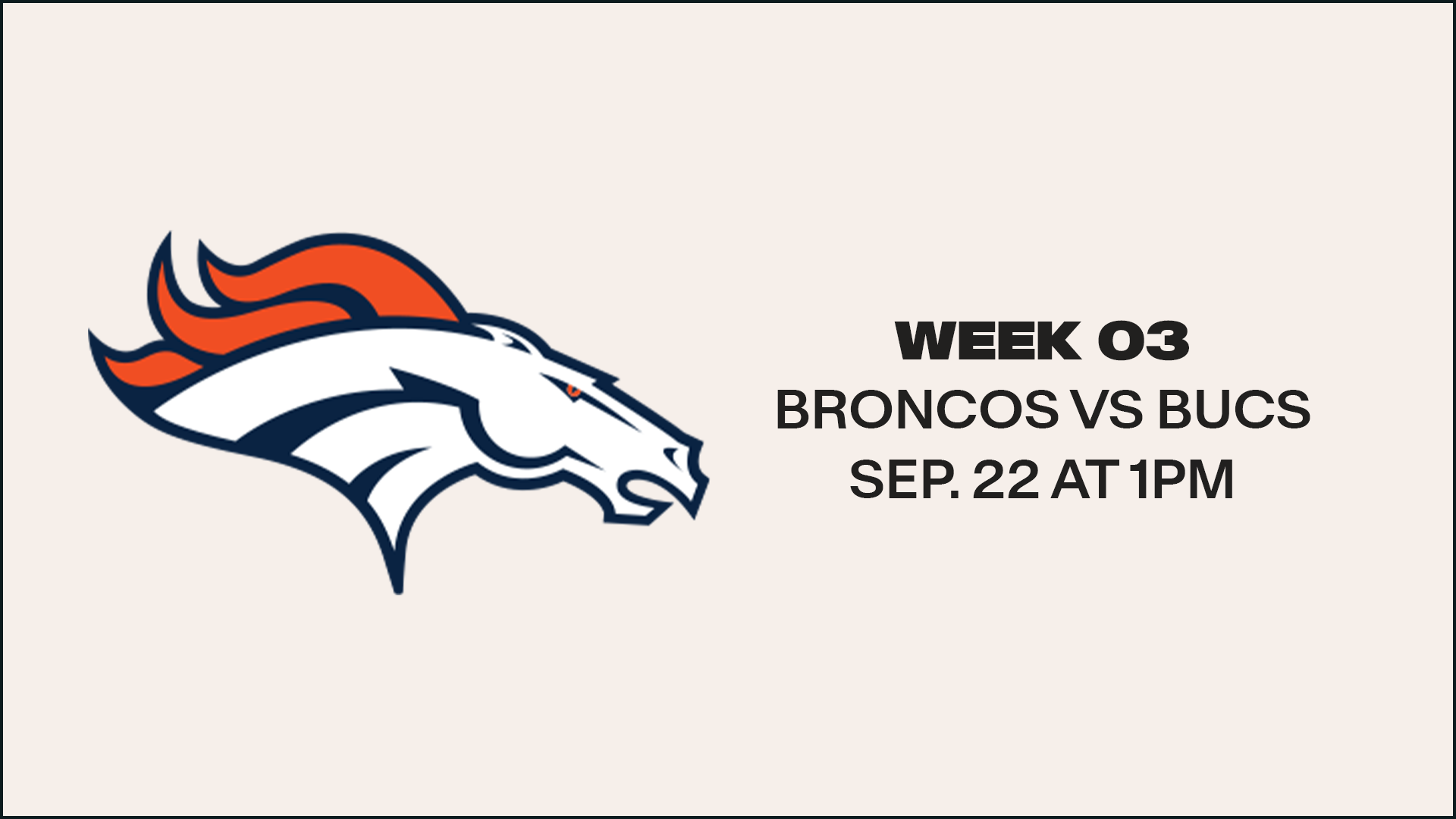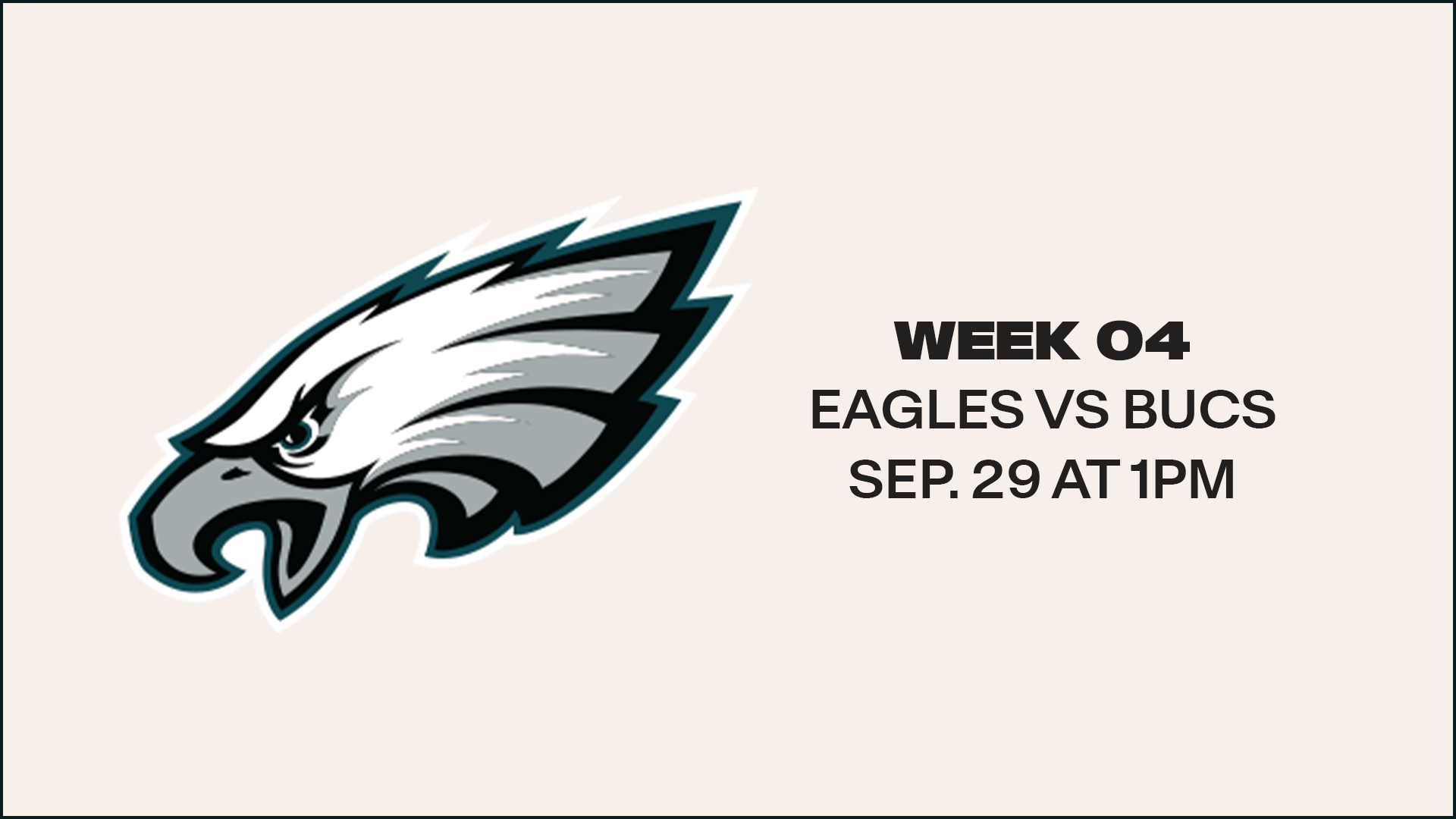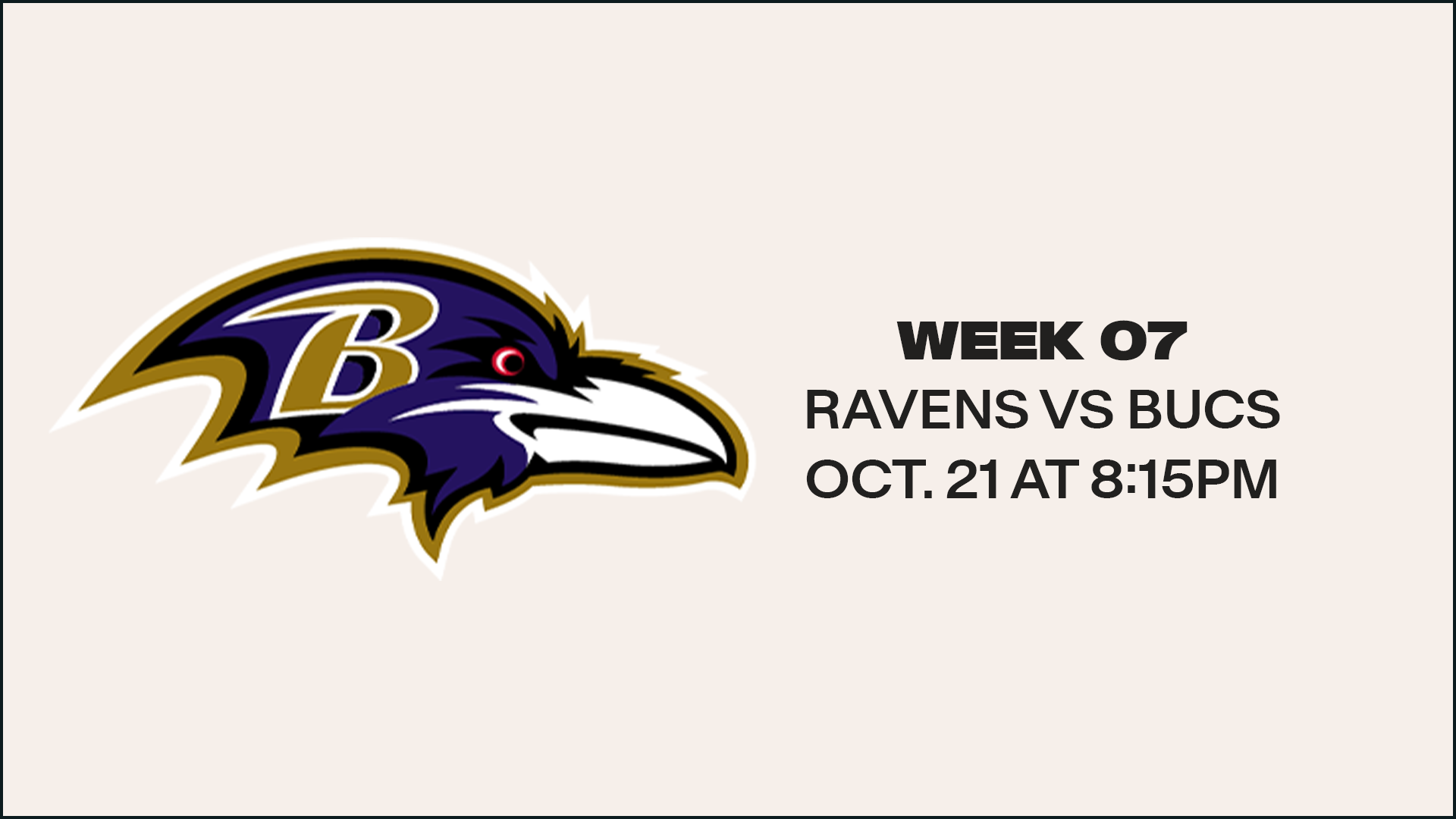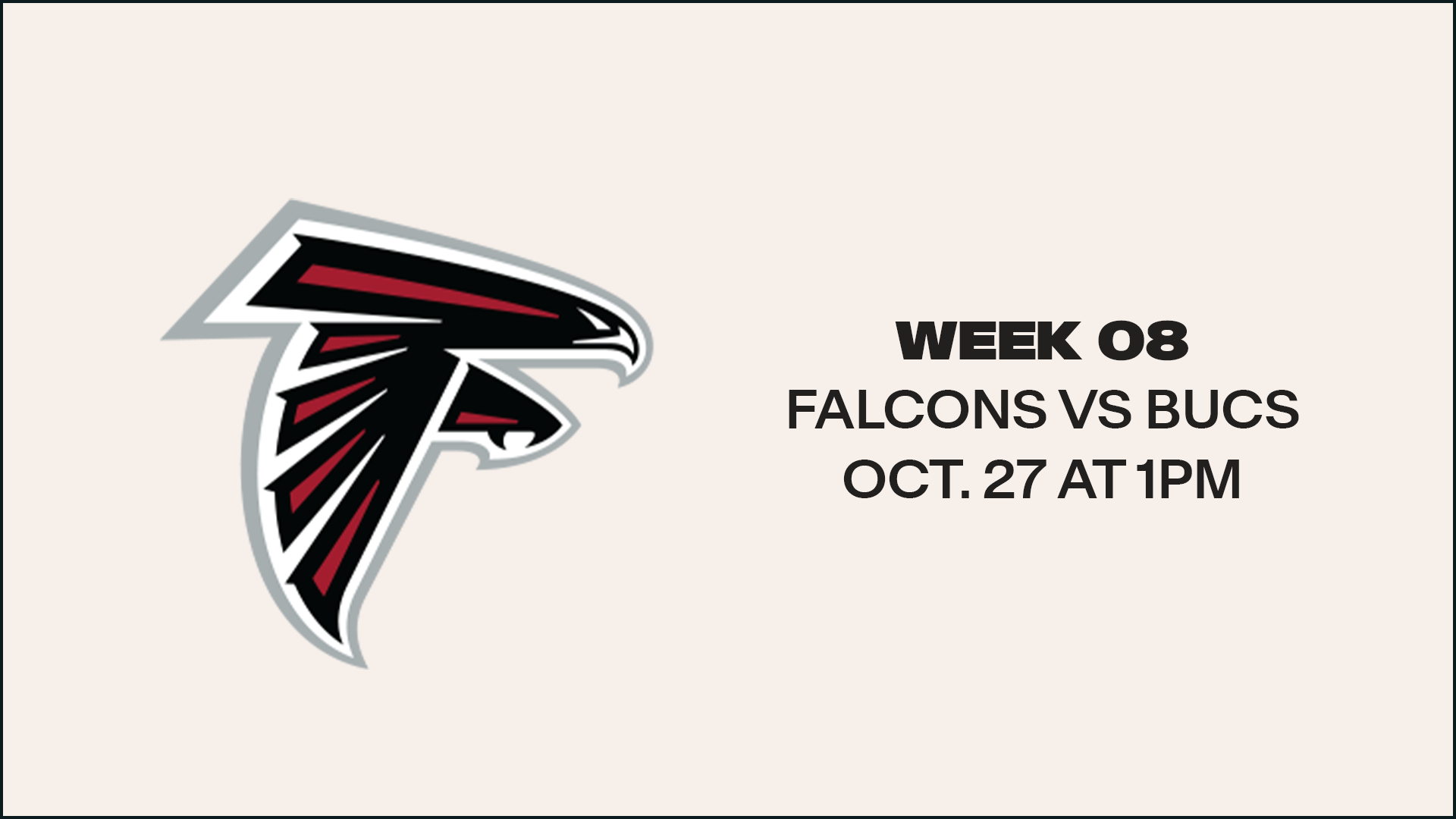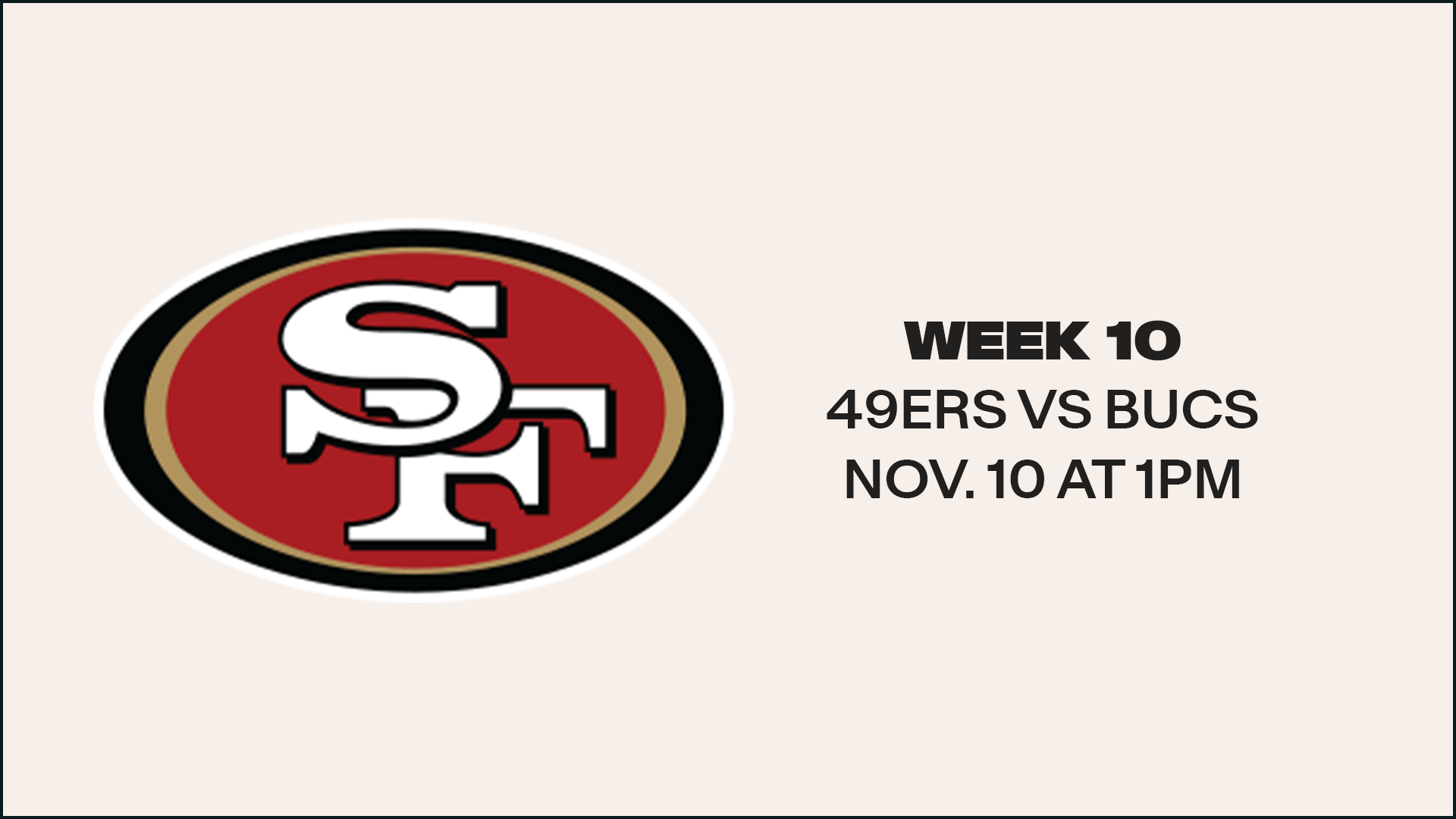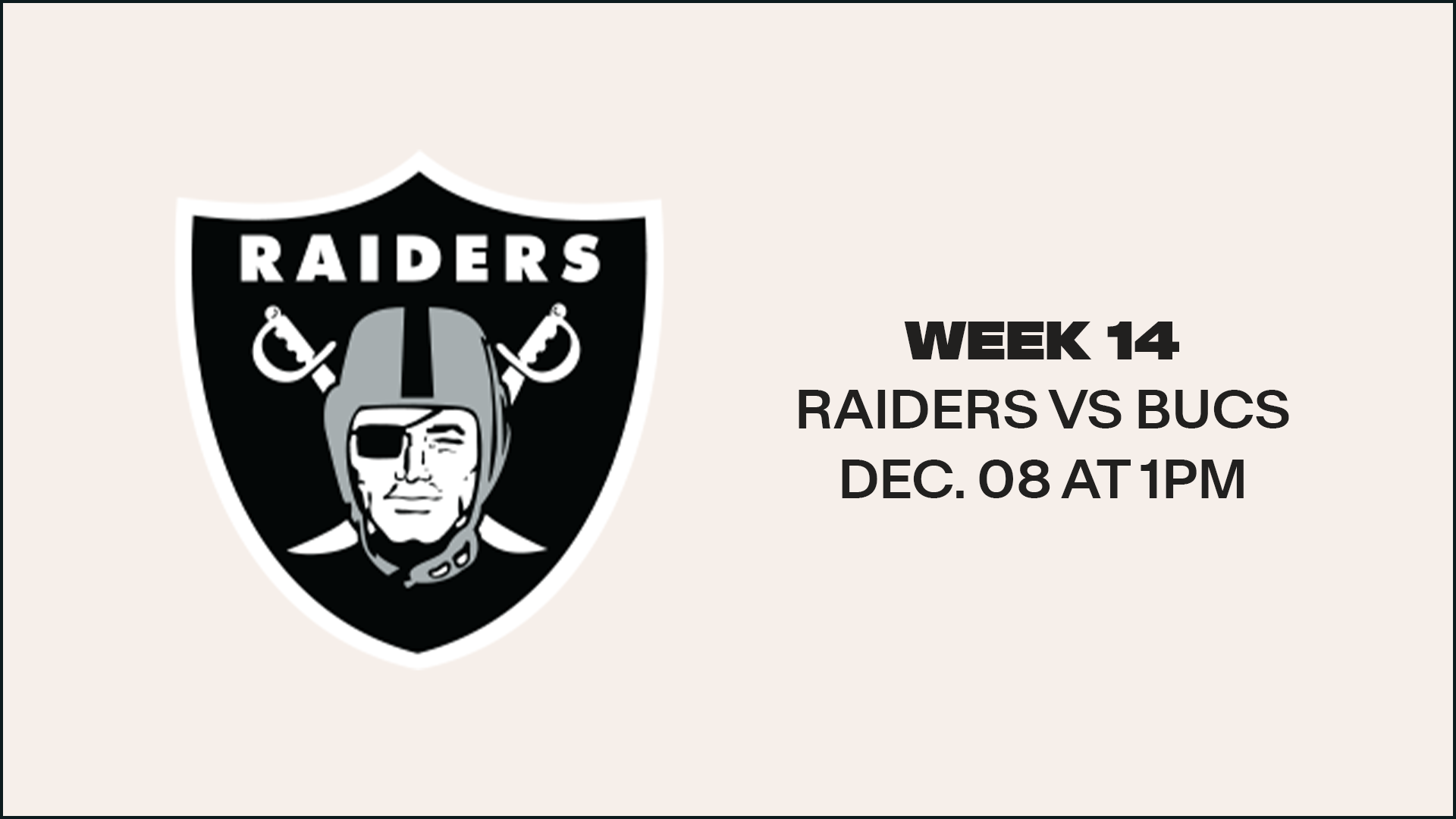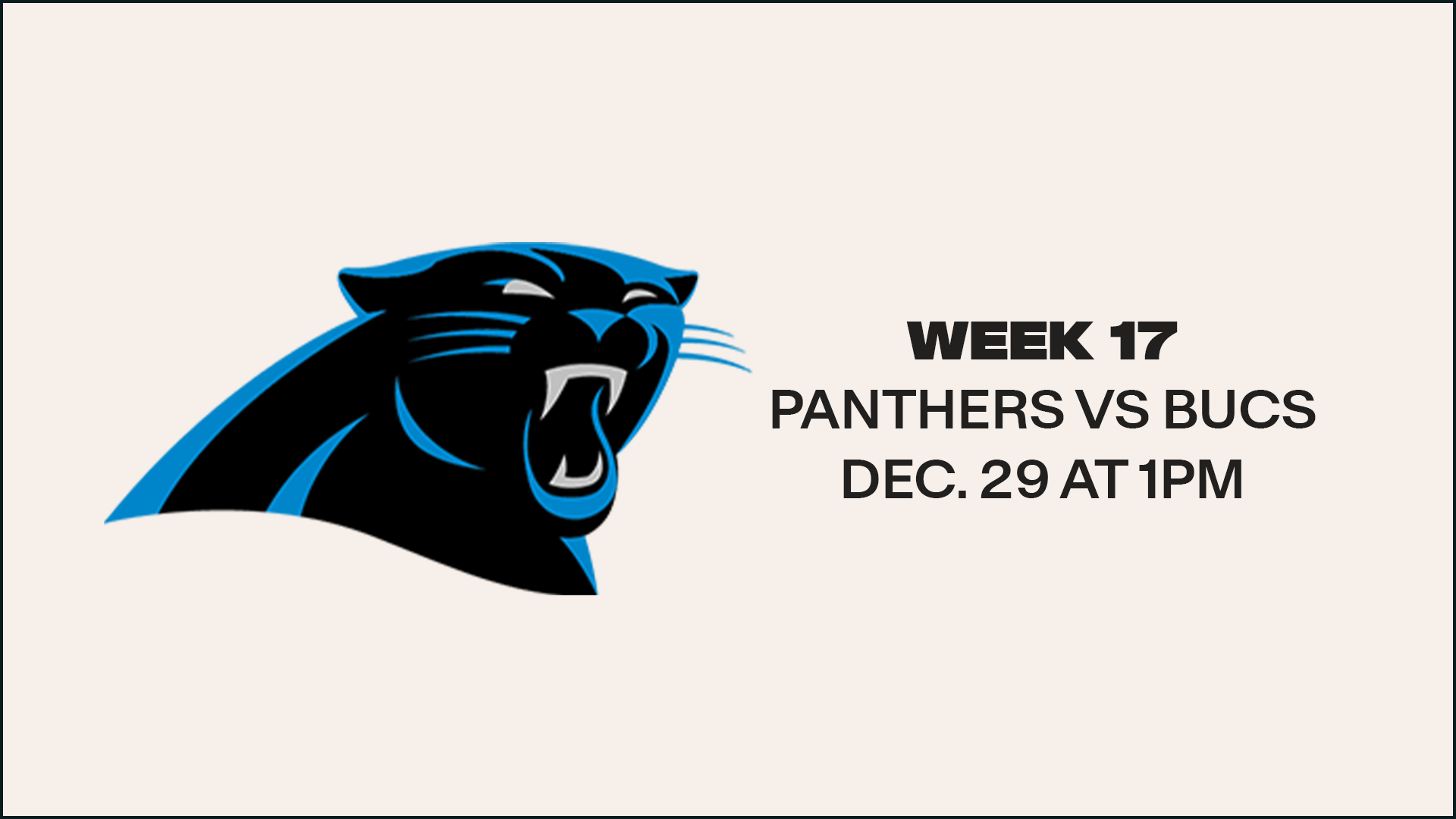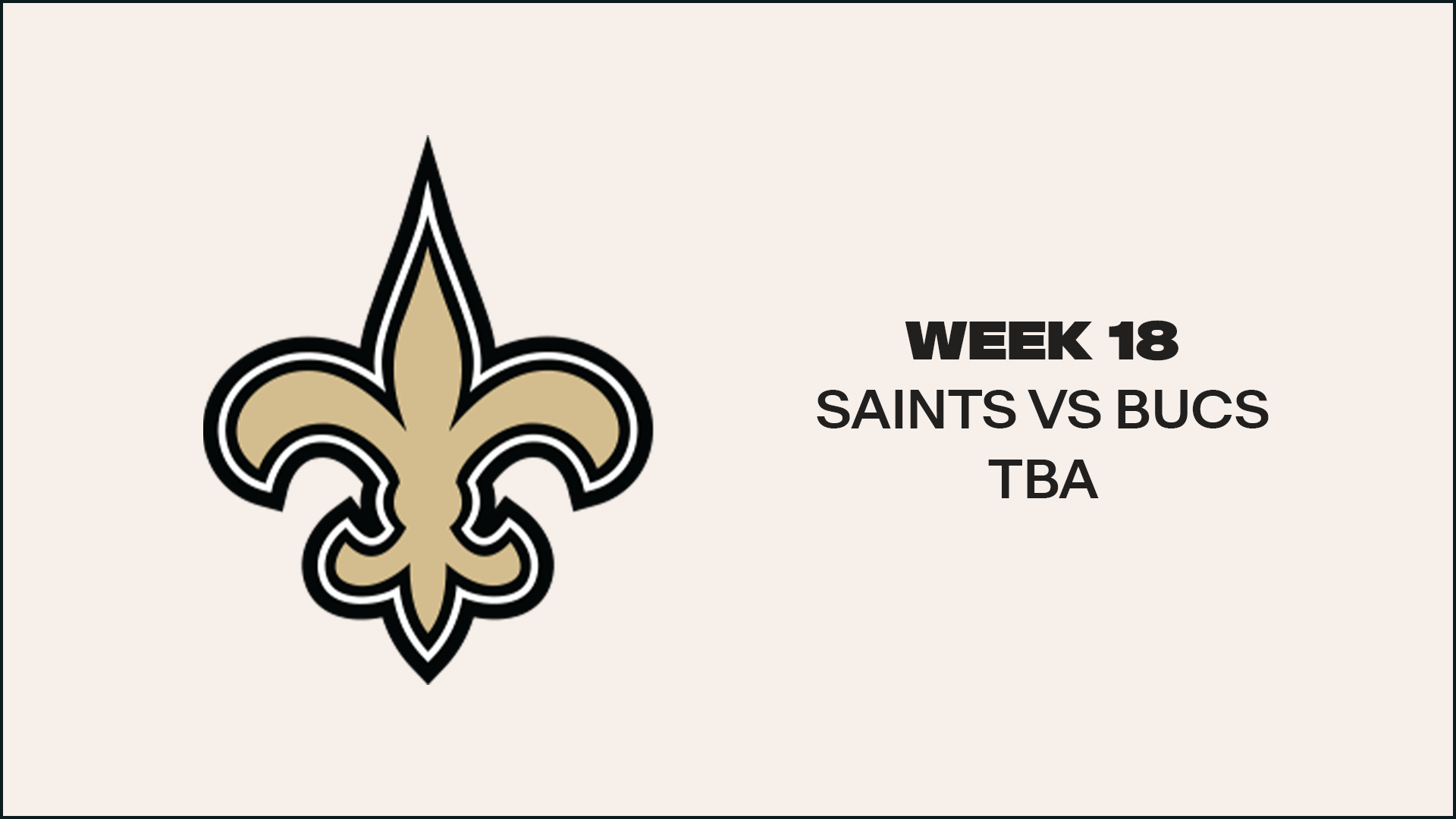As you may have heard by now, Jason Licht broke an interesting personal streak in last weekend's NFL draft. In each of his first 10 drafts as the Tampa Bay Buccaneers' General Manager, Licht had engineered at least one swap of draft picks while the rounds were going on, whether that be trading up, down, in or out. This time around, he came in with seven picks in specific spots and left with seven players selected in those exact spots. No trades. Not even one for just the fun of it.
It's a week later but I've still got the draft on my brain. It's hard to turn the page when you've spent months thinking, reading and writing about this one topic. So I'm going to give you some more random notes about the Bucs' 2024 draft results.
- As Day Three of the draft began on Saturday, the Buccaneers were in position to make a selection relatively early in the afternoon, as they held the 25th pick of the fourth round, number 125 overall. They used that on Oregon running back Bucky Irving. After that, Licht and company kicked their heels up on their desks and became spectators for several hours.
Because their 2024 fifth-round pick had been traded last year to get the sixth-rounder used on wide receiver Trey Palmer, the Bucs did not have a selection in that round. And the trade in March that netted a third-rounder for cornerback Carlton Davis had also sent this year's sixth back to the Lions. The Bucs did have a compensatory selection in the sixth round, but it was the 44th and last pick of that frame, number 220 overall. They used that one on UTEP guard Elijah Klein.
That gap of 95 draft slots was the biggest between any two picks in a Buccaneers draft since 1981. It is the fourth-longest gap between picks in Tampa Bay's drafting history. In the franchise's earliest years, as it was trying to fill out a roster that was short on true NFL talent due to unfavorable expansion rules (compared to subsequent expansion years), the team often traded mid-round draft picks for established veterans. That's how, in 1977, the Buccaneers had no picks in the fourth, fifth, sixth and seventh rounds. After taking Charley Hannah at pick number 57, the Bucs didn't pick again until number 196, which was used on quarterback Randy Hedberg. That was a gap of 139 picks; they might have wheeled some cots into the draft room. There were also pick gaps of 118 spots in the 1978 draft and 110 in the 1981 draft.
- Because the Buccaneers didn't make any trades, that meant they stayed put and picked at number 26 in the first round, selected Duke center Graham Barton. That marked the first time in 49 drafts that the Bucs had picked at exactly number 26. The other first-round slots from which the Bucs have yet to hand in a draft card are numbers two, nine, 10, 18, 21, 24 and 27.
- On the other end of that spectrum is pick number 57, which this year the Buccaneers spent on Alabama outside linebacker Chris Braswell. That's the same spot from which Tampa Bay took tackle Luke Goedeke two drafts ago and, as noted above, where they landed Hannah in 1977. In fact, the Bucs have executed the 57th pick in the NFL draft five times, which is the same number of times they've picked first overall. The only draft slot that has produced more Buccaneer picks is number 34, which the team has used six times. That group includes James Wilder, Errict Rhett and Donovan Smith.
- Barton was the first player the Buccaneers have ever drafted out of Duke. As Greg Auman of Fox Sports first pointed out, that leaves only two schools that are currently in Power Five conferences from which the Buccaneers have never drafted a player: Oklahoma State and UCF. Here's a side note to Auman's fun fact: Tampa Bay is the only NFL team never to draft a player from Oklahoma State. The Bucs' scouting department must have misplaced its map to Stillwater.
- The Bucs took Washington wide receiver Jalen McMillan in the third round, Irving in the fourth round and Washington tight end Devin Culp in the seventh round. That marked the first time since 2017 that the Buccaneers have drafted a receiver, running back and tight end in the same draft. That year it was Alabama tight end O.J. Howard in the first round, Penn State wideout Chris Godwin in the third round and Boise State running back Jeremy McNichols in the fifth round.
- Speaking of the University of Washington, with the selections of McMillan and Culp, Tampa Bay has now drafted five Huskies in the last seven drafts: Vita Vea in 2018, Joe Tryon-Shoyinka in 2021, Cade Otton in 2022 and Culp and McMillan this year. They've drafted 11 UW players in team history. All of those players plus another Huskies product, Greg Gaines, are on the Bucs' current roster. Those six Washington players are double the next schools on the list with the most current Buccaneer representation – Pittsburgh, Iowa and Nebraska.
Okay, enough about the draft. Now on to your questions.
A reminder that you can send questions to me any time you want on Twitter (@ScottSBucs) and they're easier to find if you include the hashtag #SSMailbagBucs. We are also now soliciting questions each week on our Instagram page; look for that story on Wednesdays. As always, if you want to get a longer question into the mailbag and would prefer to email your question, you can do so to tbbsocial@buccaneers.nfl.com.
Take a look inside the Tampa Bay Buccaneers' draft room over the course of the 2024 NFL Draft.

TAMPA, FL - April 25, 2024 - Head Coach Todd Bowles of the Tampa Bay Buccaneers during day 1 of the 2024 NFL Draft in the draft room at AdventHealth Training Center. Photo By Tori Richman/Tampa Bay Buccaneers

TAMPA, FL - April 25, 2024 - Assistant General Manager Mike Greenberg during day 1 of the 2024 NFL Draft in the draft room at AdventHealth Training Center. Photo By Tori Richman/Tampa Bay Buccaneers

TAMPA, FL - April 25, 2024 - Head Coach Todd Bowles of the Tampa Bay Buccaneers during day 1 of the 2024 NFL Draft in the draft room at AdventHealth Training Center. Photo By Tori Richman/Tampa Bay Buccaneers

TAMPA, FL - April 25, 2024 - General Manager Jason Licht during day 1 of the 2024 NFL Draft in the draft room at AdventHealth Training Center. Photo By Tori Richman/Tampa Bay Buccaneers

TAMPA, FL - April 25, 2024 - Head Coach Todd Bowles of the Tampa Bay Buccaneers, General Manager Jason Licht and Assistant General Manager John Spytek during day 1 of the 2024 NFL Draft in the draft room at AdventHealth Training Center. Photo By Tori Richman/Tampa Bay Buccaneers

TAMPA, FL - April 25, 2024 - Director of Player Personnel Mike Biehl during day 1 of the 2024 NFL Draft in the draft room at AdventHealth Training Center. Photo By Tori Richman/Tampa Bay Buccaneers

TAMPA, FL - April 25, 2024 - Assistant General Manager Mike Greenberg during day 1 of the 2024 NFL Draft in the draft room at AdventHealth Training Center. Photo By Tori Richman/Tampa Bay Buccaneers

TAMPA, FL - April 25, 2024 - Head Coach Todd Bowles of the Tampa Bay Buccaneers during day 1 of the 2024 NFL Draft in the draft room at AdventHealth Training Center. Photo By Tori Richman/Tampa Bay Buccaneers

TAMPA, FL - April 25, 2024 - Head Coach Todd Bowles of the Tampa Bay Buccaneers during day 1 of the 2024 NFL Draft in the draft room at AdventHealth Training Center. Photo By Tori Richman/Tampa Bay Buccaneers

TAMPA, FL - April 25, 2024 - Head Coach Todd Bowles of the Tampa Bay Buccaneers during day 1 of the 2024 NFL Draft in the draft room at AdventHealth Training Center. Photo By Tori Richman/Tampa Bay Buccaneers

TAMPA, FL - April 25, 2024 - Assistant General Manager John Spytek during day 1 of the 2024 NFL Draft in the draft room at AdventHealth Training Center. Photo By Tori Richman/Tampa Bay Buccaneers

TAMPA, FL - April 25, 2024 - General Manager Jason Licht during day 1 of the 2024 NFL Draft in the draft room at AdventHealth Training Center. Photo By Tori Richman/Tampa Bay Buccaneers

TAMPA, FL - April 25, 2024 - Assistant General Manager John Spytek and Senior Director of Football Technology Spencer Dille during day 1 of the 2024 NFL Draft in the draft room at AdventHealth Training Center. Photo By Tori Richman/Tampa Bay Buccaneers

TAMPA, FL - April 25, 2024 - General Manager Jason Licht during day 1 of the 2024 NFL Draft in the draft room at AdventHealth Training Center. Photo By Tori Richman/Tampa Bay Buccaneers

TAMPA, FL - April 25, 2024 - Assistant General Manager John Spytek during day 1 of the 2024 NFL Draft in the draft room at AdventHealth Training Center. Photo By Tori Richman/Tampa Bay Buccaneers

TAMPA, FL - April 25, 2024 - Draft room during day 1 of the 2024 NFL Draft in the draft room at AdventHealth Training Center. Photo By Tori Richman/Tampa Bay Buccaneers

TAMPA, FL - April 25, 2024 - General Manager Jason Licht and Head Coach Todd Bowles of the Tampa Bay Buccaneers during day 1 of the 2024 NFL Draft in the draft room at AdventHealth Training Center. Photo By Tori Richman/Tampa Bay Buccaneers

TAMPA, FL - April 25, 2024 - Director of Football Operations Shelton Quarles during day 1 of the 2024 NFL Draft in the draft room at AdventHealth Training Center. Photo By Tori Richman/Tampa Bay Buccaneers

TAMPA, FL - April 25, 2024 - General Manager Jason Licht during day 1 of the 2024 NFL Draft in the draft room at AdventHealth Training Center. Photo By Tori Richman/Tampa Bay Buccaneers

TAMPA, FL - April 25, 2024 - General Manager Jason Licht during day 1 of the 2024 NFL Draft in the draft room at AdventHealth Training Center. Photo By Tori Richman/Tampa Bay Buccaneers

TAMPA, FL - April 25, 2024 - Assistant General Manager Mike Greenberg during day 1 of the 2024 NFL Draft in the draft room at AdventHealth Training Center. Photo By Tori Richman/Tampa Bay Buccaneers

TAMPA, FL - April 25, 2024 - Director of Player Personnel Rob McCartney during day 1 of the 2024 NFL Draft in the draft room at AdventHealth Training Center. Photo By Tori Richman/Tampa Bay Buccaneers

TAMPA, FL - April 25, 2024 - Vice President of Football Research Jacqueline Davidson during day 1 of the 2024 NFL Draft in the draft room at AdventHealth Training Center. Photo By Tori Richman/Tampa Bay Buccaneers

TAMPA, FL - April 25, 2024 - Director of Player Personnel Rob McCartney during day 1 of the 2024 NFL Draft in the draft room at AdventHealth Training Center. Photo By Tori Richman/Tampa Bay Buccaneers

TAMPA, FL - April 25, 2024 - Director of Player Personnel Mike Biehl during day 1 of the 2024 NFL Draft in the draft room at AdventHealth Training Center. Photo By Tori Richman/Tampa Bay Buccaneers

TAMPA, FL - April 25, 2024 - Vice President of Football Research Jacqueline Davidson during day 1 of the 2024 NFL Draft in the draft room at AdventHealth Training Center. Photo By Tori Richman/Tampa Bay Buccaneers

TAMPA, FL - April 25, 2024 - General Manager Jason Licht during day 1 of the 2024 NFL Draft in the draft room at AdventHealth Training Center. Photo By Tori Richman/Tampa Bay Buccaneers

TAMPA, FL - April 25, 2024 - General Manager Jason Licht during day 1 of the 2024 NFL Draft in the draft room at AdventHealth Training Center. Photo By Tori Richman/Tampa Bay Buccaneers

TAMPA, FL - April 25, 2024 - Head Coach Todd Bowles of the Tampa Bay Buccaneers during day 1 of the 2024 NFL Draft in the draft room at AdventHealth Training Center. Photo By Tori Richman/Tampa Bay Buccaneers

TAMPA, FL - April 25, 2024 - General Manager Jason Licht during day 1 of the 2024 NFL Draft in the draft room at AdventHealth Training Center. Photo By Tori Richman/Tampa Bay Buccaneers

TAMPA, FL - April 25, 2024 - General Manager Jason Licht and Head Coach Todd Bowles of the Tampa Bay Buccaneers during day 1 of the 2024 NFL Draft in the draft room at AdventHealth Training Center. Photo By Tori Richman/Tampa Bay Buccaneers

TAMPA, FL - April 25, 2024 - General Manager Jason Licht and Chief Operating Officer Brian Ford during day 1 of the 2024 NFL Draft in the draft room at AdventHealth Training Center. Photo By Tori Richman/Tampa Bay Buccaneers

TAMPA, FL - April 25, 2024 - National Scout Tony Hardie during day 1 of the 2024 NFL Draft in the draft room at AdventHealth Training Center. Photo By Tori Richman/Tampa Bay Buccaneers

TAMPA, FL - April 25, 2024 - General Manager Jason Licht during day 1 of the 2024 NFL Draft in the draft room at AdventHealth Training Center. Photo By Tori Richman/Tampa Bay Buccaneers

TAMPA, FL - April 25, 2024 - Assistant General Manager Mike Greenberg during day 1 of the 2024 NFL Draft in the draft room at AdventHealth Training Center. Photo By Tori Richman/Tampa Bay Buccaneers

TAMPA, FL - April 25, 2024 - Director of Player Personnel Rob McCartney during day 1 of the 2024 NFL Draft in the draft room at AdventHealth Training Center. Photo By Tori Richman/Tampa Bay Buccaneers

TAMPA, FL - April 25, 2024 - Assistant General Manager John Spytek during day 1 of the 2024 NFL Draft in the draft room at AdventHealth Training Center. Photo By Tori Richman/Tampa Bay Buccaneers

TAMPA, FL - April 25, 2024 - Assistant General Manager John Spytek during day 1 of the 2024 NFL Draft in the draft room at AdventHealth Training Center. Photo By Tori Richman/Tampa Bay Buccaneers
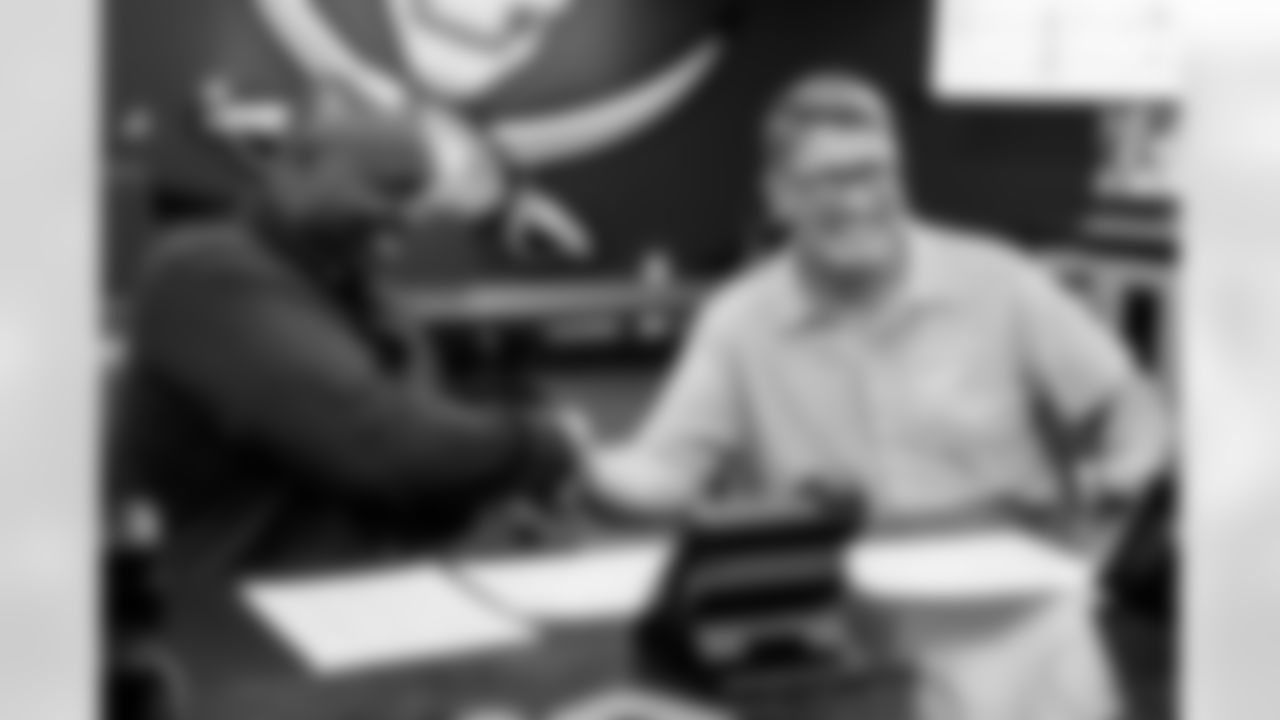
TAMPA, FL - April 25, 2024 - Head Coach Todd Bowles of the Tampa Bay Buccaneers and General Manager Jason Licht during day 1 of the 2024 NFL Draft in the draft room at AdventHealth Training Center. Photo By Tori Richman/Tampa Bay Buccaneers

TAMPA, FL - April 25, 2024 - General Manager Jason Licht makes the call during day 1 of the 2024 NFL Draft in the draft room at AdventHealth Training Center. Photo By Tori Richman/Tampa Bay Buccaneers

TAMPA, FL - April 25, 2024 - Head Coach Todd Bowles of the Tampa Bay Buccaneers on the call during day 1 of the 2024 NFL Draft in the draft room at AdventHealth Training Center. Photo By Tori Richman/Tampa Bay Buccaneers

TAMPA, FL - April 25, 2024 - Combine Scout Zach Smith, General Manager Jason Licht and College Scout Cesar Rivera during day 1 of the 2024 NFL Draft in the draft room at AdventHealth Training Center. Photo By Tori Richman/Tampa Bay Buccaneers

TAMPA, FL - April 25, 2024 - College Scout Brian McLaughlin during day 1 of the 2024 NFL Draft in the draft room at AdventHealth Training Center. Photo By Tori Richman/Tampa Bay Buccaneers

TAMPA, FL - April 25, 2024 - Assistant General Manager John Spytek during day 1 of the 2024 NFL Draft in the draft room at AdventHealth Training Center. Photo By Tori Richman/Tampa Bay Buccaneers

TAMPA, FL - April 25, 2024 - Assistant General Manager John Spytek during day 1 of the 2024 NFL Draft in the draft room at AdventHealth Training Center. Photo By Tori Richman/Tampa Bay Buccaneers

TAMPA, FL - April 25, 2024 - Scouting Assistant Korey Finnie during day 1 of the 2024 NFL Draft in the draft room at AdventHealth Training Center. Photo By Tori Richman/Tampa Bay Buccaneers

TAMPA, FL - April 25, 2024 - Assistant General Manager John Spytek during day 1 of the 2024 NFL Draft in the draft room at AdventHealth Training Center. Photo By Tori Richman/Tampa Bay Buccaneers

TAMPA, FL - April 25, 2024 - Combine Scout Zach Smith during day 1 of the 2024 NFL Draft in the draft room at AdventHealth Training Center. Photo By Tori Richman/Tampa Bay Buccaneers

TAMPA, FL - April 25, 2024 - Director of Player Personnel Rob McCartney, National Scout Andy Speyer and Assistant Director of College Scouting Byron Kiefer during day 1 of the 2024 NFL Draft in the draft room at AdventHealth Training Center. Photo By Tori Richman/Tampa Bay Buccaneers

TAMPA, FL - April 26, 2024 - College Scout Brian McLaughlin during day 2 of the 2024 NFL Draft in the draft room at AdventHealth Training Center. Photo By Tori Richman/Tampa Bay Buccaneers

TAMPA, FL - April 25, 2024 - Assistant General Manager John Spytek during day 2 of the 2024 NFL Draft in the draft room at AdventHealth Training Center. Photo By Tori Richman/Tampa Bay Buccaneers

TAMPA, FL - April 26, 2024 - Assistant General Manager Mike Greenberg during day 2 of the 2024 NFL Draft in the draft room at AdventHealth Training Center. Photo By Tori Richman/Tampa Bay Buccaneers

TAMPA, FL - April 26, 2024 - Director of Pro Scouting Shane Scannell during day 2 of the 2024 NFL Draft in the draft room at AdventHealth Training Center. Photo By Tori Richman/Tampa Bay Buccaneers

TAMPA, FL - April 25, 2024 - Assistant General Manager John Spytek during day 2 of the 2024 NFL Draft in the draft room at AdventHealth Training Center. Photo By Tori Richman/Tampa Bay Buccaneers

TAMPA, FL - April 25, 2024 - Assistant General Manager John Spytek during day 2 of the 2024 NFL Draft in the draft room at AdventHealth Training Center. Photo By Tori Richman/Tampa Bay Buccaneers

TAMPA, FL - April 26, 2024 - Scouting Assistant Korey Finnie and Director of Football Operations Shelton Quarles during day 2 of the 2024 NFL Draft in the draft room at AdventHealth Training Center. Photo By Tori Richman/Tampa Bay Buccaneers

TAMPA, FL - April 26, 2024 - College Scout Donovan Cotton during day 2 of the 2024 NFL Draft in the draft room at AdventHealth Training Center. Photo By Tori Richman/Tampa Bay Buccaneers

TAMPA, FL - April 26, 2024 - Scouting Analyst Shannon Hogue during day 2 of the 2024 NFL Draft in the draft room at AdventHealth Training Center. Photo By Tori Richman/Tampa Bay Buccaneers

TAMPA, FL - April 26, 2024 - Assistant General Manager Mike Greenberg during day 2 of the 2024 NFL Draft in the draft room at AdventHealth Training Center. Photo By Tori Richman/Tampa Bay Buccaneers

TAMPA, FL - April 26, 2024 - Head Coach Todd Bowles of the Tampa Bay Buccaneers during day 2 of the 2024 NFL Draft in the draft room at AdventHealth Training Center. Photo By Tori Richman/Tampa Bay Buccaneers

TAMPA, FL - April 26, 2024 - College Scout Tony Hardie during day 2 of the 2024 NFL Draft in the draft room at AdventHealth Training Center. Photo By Tori Richman/Tampa Bay Buccaneers

TAMPA, FL - April 26, 2024 - National Scout Andy Speyer during day 2 of the 2024 NFL Draft in the draft room at AdventHealth Training Center. Photo By Tori Richman/Tampa Bay Buccaneers

TAMPA, FL - April 26, 2024 - College Scout Donovan Cotton during day 2 of the 2024 NFL Draft in the draft room at AdventHealth Training Center. Photo By Tori Richman/Tampa Bay Buccaneers

TAMPA, FL - April 26, 2024 - College Scout Tony Hardie during day 2 of the 2024 NFL Draft in the draft room at AdventHealth Training Center. Photo By Tori Richman/Tampa Bay Buccaneers

TAMPA, FL - April 26, 2024 - Assistant Director of College Scouting Byron Kiefer during day 2 of the 2024 NFL Draft in the draft room at AdventHealth Training Center. Photo By Tori Richman/Tampa Bay Buccaneers

TAMPA, FL - April 26, 2024 - Scouting Coordinator Peighton Roth and Scouting Assistant Emmett Clifford during day 2 of the 2024 NFL Draft in the draft room at AdventHealth Training Center. Photo By Tori Richman/Tampa Bay Buccaneers

TAMPA, FL - April 26, 2024 - Draft room phones during day 2 of the 2024 NFL Draft in the draft room at AdventHealth Training Center. Photo By Tori Richman/Tampa Bay Buccaneers

TAMPA, FL - April 26, 2024 - Head Coach Todd Bowles of the Tampa Bay Buccaneers during day 2 of the 2024 NFL Draft in the draft room at AdventHealth Training Center. Photo By Tori Richman/Tampa Bay Buccaneers

TAMPA, FL - April 26, 2024 - Assistant General Manager Mike Greenberg during day 2 of the 2024 NFL Draft in the draft room at AdventHealth Training Center. Photo By Tori Richman/Tampa Bay Buccaneers

TAMPA, FL - April 26, 2024 - College Scout Cesar Rivera and College Scout Brian McLaughlin during day 2 of the 2024 NFL Draft in the draft room at AdventHealth Training Center. Photo By Tori Richman/Tampa Bay Buccaneers

TAMPA, FL - April 26, 2024 - Vice President of Football Research Jacqueline Davidson during day 2 of the 2024 NFL Draft in the draft room at AdventHealth Training Center. Photo By Tori Richman/Tampa Bay Buccaneers

TAMPA, FL - April 26, 2024 - National Scout Antwon Murray during day 2 of the 2024 NFL Draft in the draft room at AdventHealth Training Center. Photo By Tori Richman/Tampa Bay Buccaneers

TAMPA, FL - April 26, 2024 - College Scout Donovan Cotton during day 2 of the 2024 NFL Draft in the draft room at AdventHealth Training Center. Photo By Tori Richman/Tampa Bay Buccaneers

TAMPA, FL - April 26, 2024 - Assistant General Manager Mike Greenberg during day 2 of the 2024 NFL Draft in the draft room at AdventHealth Training Center. Photo By Tori Richman/Tampa Bay Buccaneers

TAMPA, FL - April 26, 2024 - Director of Player Personnel Mike Biehl during day 2 of the 2024 NFL Draft in the draft room at AdventHealth Training Center. Photo By Tori Richman/Tampa Bay Buccaneers

TAMPA, FL - April 26, 2024 - Director of Player Personnel Mike Biehl during day 2 of the 2024 NFL Draft in the draft room at AdventHealth Training Center. Photo By Tori Richman/Tampa Bay Buccaneers

TAMPA, FL - April 26, 2024 - Head Coach Todd Bowles of the Tampa Bay Buccaneers during day 2 of the 2024 NFL Draft in the draft room at AdventHealth Training Center. Photo By Tori Richman/Tampa Bay Buccaneers

TAMPA, FL - April 26, 2024 - Phone during day 2 of the 2024 NFL Draft in the draft room at AdventHealth Training Center. Photo By Tori Richman/Tampa Bay Buccaneers
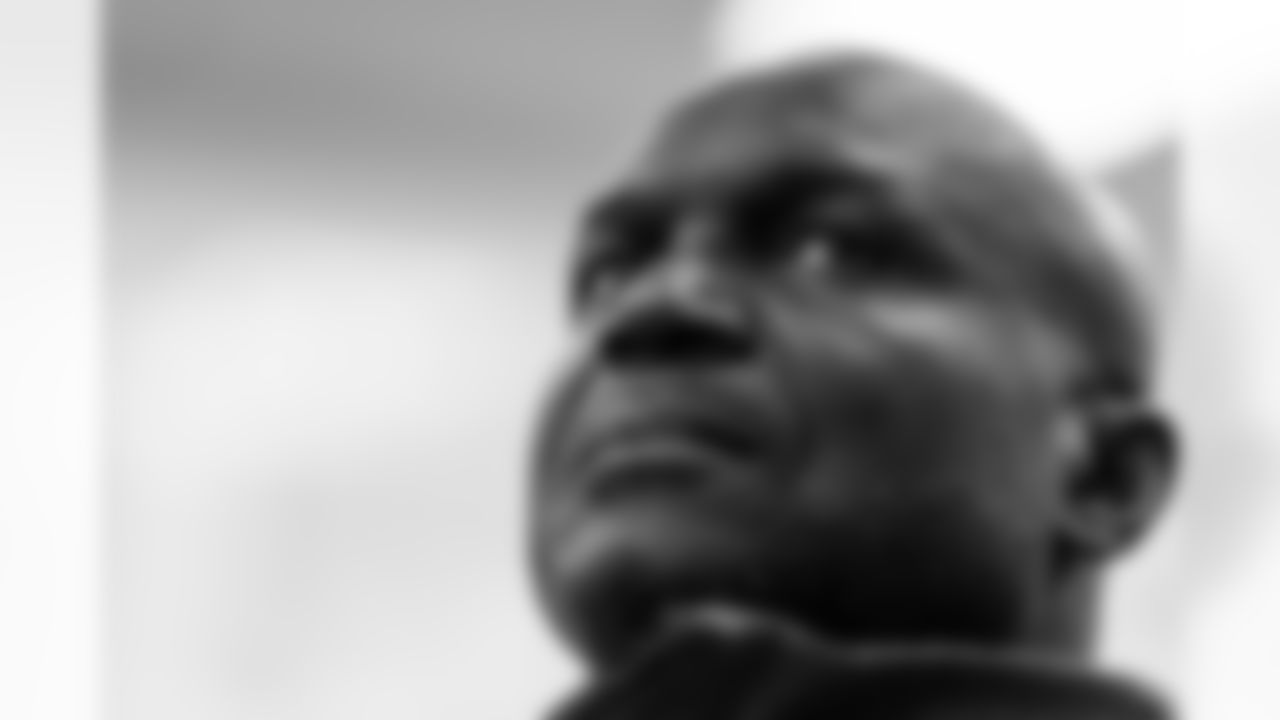
TAMPA, FL - April 26, 2024 - Head Coach Todd Bowles of the Tampa Bay Buccaneers during day 2 of the 2024 NFL Draft in the draft room at AdventHealth Training Center. Photo By Tori Richman/Tampa Bay Buccaneers

TAMPA, FL - April 25, 2024 - Assistant General Manager John Spytek during day 2 of the 2024 NFL Draft in the draft room at AdventHealth Training Center. Photo By Tori Richman/Tampa Bay Buccaneers

TAMPA, FL - April 26, 2024 - College Scout Mark Ellenz during day 2 of the 2024 NFL Draft in the draft room at AdventHealth Training Center. Photo By Tori Richman/Tampa Bay Buccaneers

TAMPA, FL - April 26, 2024 - General Manager Jason Licht during day 2 of the 2024 NFL Draft in the draft room at AdventHealth Training Center. Photo By Tori Richman/Tampa Bay Buccaneers

TAMPA, FL - April 26, 2024 - Assistant General Manager Mike Greenberg during day 2 of the 2024 NFL Draft in the draft room at AdventHealth Training Center. Photo By Tori Richman/Tampa Bay Buccaneers

TAMPA, FL - April 26, 2024 - General Manager Jason Licht during day 2 of the 2024 NFL Draft in the draft room at AdventHealth Training Center. Photo By Tori Richman/Tampa Bay Buccaneers

TAMPA, FL - April 26, 2024 - General Manager Jason Licht makes the call during day 2 of the 2024 NFL Draft in the draft room at AdventHealth Training Center. Photo By Tori Richman/Tampa Bay Buccaneers

TAMPA, FL - April 26, 2024 - General Manager Jason Licht makes the call during day 2 of the 2024 NFL Draft in the draft room at AdventHealth Training Center. Photo By Tori Richman/Tampa Bay Buccaneers

TAMPA, FL - April 26, 2024 - General Manager Jason Licht makes the call during day 2 of the 2024 NFL Draft in the draft room at AdventHealth Training Center. Photo By Tori Richman/Tampa Bay Buccaneers

TAMPA, FL - April 26, 2024 - Director of Player Personnel Mike Biehl during day 2 of the 2024 NFL Draft in the draft room at AdventHealth Training Center. Photo By Tori Richman/Tampa Bay Buccaneers

TAMPA, FL - April 26, 2024 - Director of Player Personnel Rob McCartney during day 2 of the 2024 NFL Draft in the draft room at AdventHealth Training Center. Photo By Tori Richman/Tampa Bay Buccaneers

TAMPA, FL - April 26, 2024 - College Scout Tony Hardie during day 2 of the 2024 NFL Draft in the draft room at AdventHealth Training Center. Photo By Tori Richman/Tampa Bay Buccaneers

TAMPA, FL - April 26, 2024 - Head Coach Todd Bowles of the Tampa Bay Buccaneers during day 2 of the 2024 NFL Draft in the draft room at AdventHealth Training Center. Photo By Tori Richman/Tampa Bay Buccaneers

TAMPA, FL - April 26, 2024 - General Manager Jason Licht during day 2 of the 2024 NFL Draft in the draft room at AdventHealth Training Center. Photo By Tori Richman/Tampa Bay Buccaneers

TAMPA, FL - April 26, 2024 - General Manager Jason Licht makes the call during day 2 of the 2024 NFL Draft in the draft room at AdventHealth Training Center. Photo By Tori Richman/Tampa Bay Buccaneers

TAMPA, FL - April 26, 2024 - Head Coach Todd Bowles of the Tampa Bay Buccaneers on the call during day 2 of the 2024 NFL Draft in the draft room at AdventHealth Training Center. Photo By Tori Richman/Tampa Bay Buccaneers

TAMPA, FL - April 26, 2024 - General Manager Jason Licht and Head Coach Todd Bowles of the Tampa Bay Buccaneers during day 2 of the 2024 NFL Draft in the draft room at AdventHealth Training Center. Photo By Tori Richman/Tampa Bay Buccaneers

TAMPA, FL - April 26, 2024 - General Manager Jason Licht makes the call during day 2 of the 2024 NFL Draft in the draft room at AdventHealth Training Center. Photo By Tori Richman/Tampa Bay Buccaneers

TAMPA, FL - April 26, 2024 - General Manager Jason Licht makes the call during day 2 of the 2024 NFL Draft in the draft room at AdventHealth Training Center. Photo By Tori Richman/Tampa Bay Buccaneers
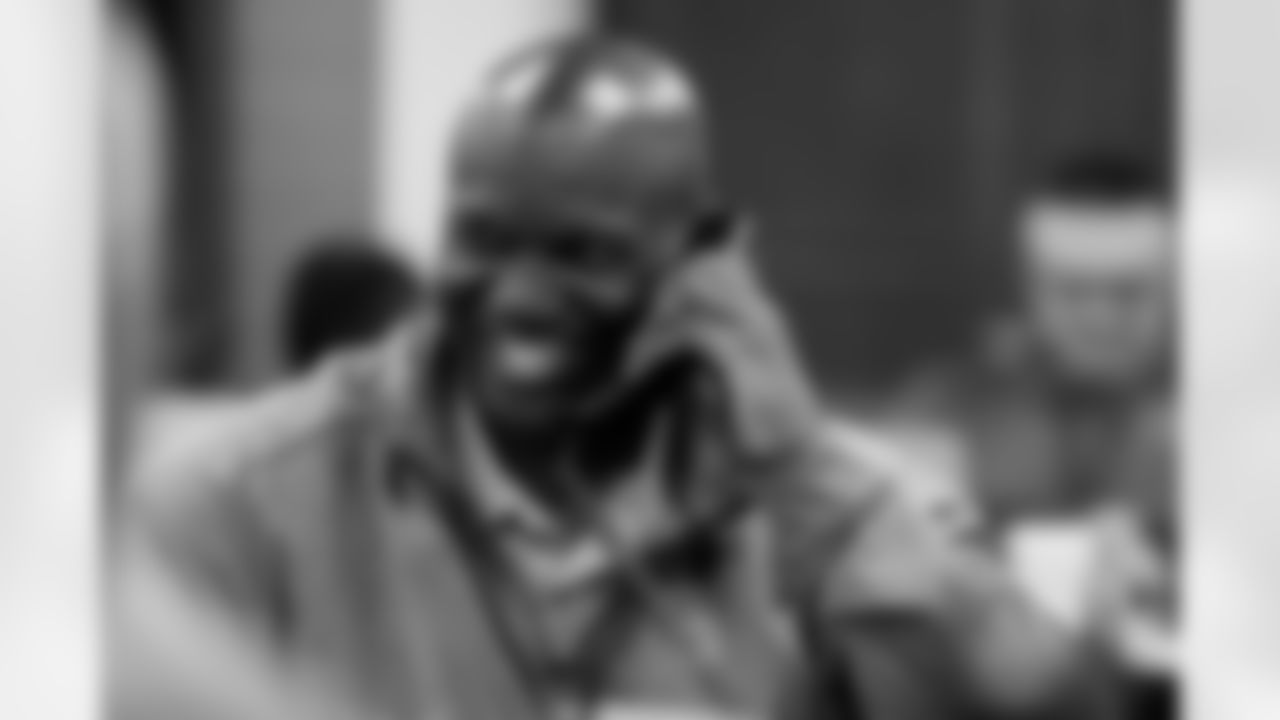
TAMPA, FL - April 26, 2024 - Head Coach Todd Bowles of the Tampa Bay Buccaneers on the call during day 2 of the 2024 NFL Draft in the draft room at AdventHealth Training Center. Photo By Tori Richman/Tampa Bay Buccaneers

TAMPA, FL - April 26, 2024 - General Manager Jason Licht during day 2 of the 2024 NFL Draft in the draft room at AdventHealth Training Center. Photo By Tori Richman/Tampa Bay Buccaneers

TAMPA, FL - April 26, 2024 - Draft coverage during day 2 of the 2024 NFL Draft in the draft room at AdventHealth Training Center. Photo By Tori Richman/Tampa Bay Buccaneers
Which day 3 rookie do you think can have the most impact in year 1
- mule.dario (via Instagram)
We'll start with an easy one, because – assuming this question is specifically about the Buccaneers – there are only three to choose from and one of them has by far the clearest path to significant playing time in 2024.
For anyone who doesn't know, Day Three of the NFL Draft consists of rounds four through seven. The Buccaneers drafted Oregon running back Bucky Irving in the fourth round, UTEP guard Elijah Klein in the sixth round and Washington tight end Devin Culp in the seventh round. Irving is likely to get the most playing time of the three.
First, let's start with the fact that these players have to make the 53-man roster first in order to make any kind of impact. Hopefully all three of them do, and Jason Licht's track record in recent years has been very good in that regard. Seven of the eight players he drafted last year made the team and saw action in the regular season, and the only exception, sixth-round outside linebacker Jose Ramirez, spent the whole year on the Bucs' practice squad and is expected to get more of an opportunity in 2024.
Still, by the sheer numbers, fourth-round picks tend to make it more often than sixth-rounders, and sixth-rounders make it more often than seventh-rounders. Prior to this year, 82.0% of the players the Bucs drafted in the fourth round played in at least one regular-season game and 66.0% started at least one regular season game. Those numbers go down to 73.5% and 40.8%, respectively, for sixth-rounders and to 50.8% and 24.6%, respectively, for seventh-rounders.
Once that hurdle is cleared, we need to figure out what kind of opportunity these players will have to get on the field. Klein should be involved in the battle for the open left guard spot, but it's a crowded competition also featuring the likes of Ben Bredeson, Sua Opeta, Robert Hainsey, Brandon Walton and made Cody Mauch if the team chooses to flip him from the right to left side (in which case we're talking about a similarly crowded competition for right guard). It seems more likely that Klein would begin his career as a reserve with valuable versatility to back up multiple positions.
Culp does potentially bring a different element to the Bucs' tight end room with his 4.47 speed, but he also faces a lot of competition for playing time. The team already used three picks on tight ends over the previous two drafts – Cade Otton, Ko Kieft and Payne Durham – and it seems likely that all three will still be around in 2024. Otton played a whopping 97% of the team's offensive snaps last year, and if his playing time is anything close to that than the other tight ends will be seeing most of their action in multiple-TE sets. The Bucs play three-receiver packages more often than two-tight end packages, so that further cuts down on the playing time for the reserve tight ends. The Bucs may find some ways to use Culp that is different than the way they use their other tight ends, but even so we're probably not talking about a huge amount of snaps.
For Irving, though, the opportunity is clear. Last season, Rachaad White led all NFL running backs in offensive snaps, and I think the Buccaneers would like to reduce that workload a little bit. White will undoubtedly remain the lead back and will get the most playing time, but if Irving can rise to second on the depth chart there should be plenty of action for him, too, particularly because he has the receiving skills to stay on the field for all three downs (assuming his pass protection is up to snuff). Last season, over the last 11 weeks, playoffs included, the only two backs who got any offensive snaps for the Bucs were White and veteran Chase Edmonds. Edmonds has re-signed for the 2024 season and could hang onto that role, but Irving will surely push to get on the field. Edmonds played 19% of the snaps when he was active for games last year; if the second back is getting a larger share in 2024, and that back is Irving, that's a very good opportunity to make an impact.
Irving's not the biggest back but he's stout and a more physical runner than you might expect. He led the nation in forced missed tackles last year and also led all FBS backs in receptions. Running back is one of the few positions – in very stark contrast to tight end – at which rookies often can make a very big impact as a rookie. It all adds up to Irving being the easy answer to this question.
Had Graham Barton not been there, what do you think the Bucs would have done in round 1?
- ncls_brt (via Instagram)
That depends. I get the impression from what Jason Licht and Jon Spytek said after the draft that the Bucs started the evening with a handful of players they would have been happy with at the 26th pick but were down to just a couple when their time on the clock was approaching. If Barton was gone – and maybe the Cowboys would have taken him at 24 if they hadn't traded back to 29 with the Lions – but there was at least one player left on that list, I think they would have stayed put and drafted him. If all the players on that list were gone, I think Licht would have looked for a way to bail out of that spot, pick up some extra draft capital and maybe pick early in the second round.
If Barton was gone and the Bucs picked at 26 anyway, my guess is they would have looked for help for their defensive front. There had been a run on the top edge rushers between picks 15 and 21, so there might not have been first-round value left at that spot, but there were some highly rated interior rushers still available. I know that's not the Bucs' biggest area of need, but it would have been a chance to build one of the most dominant defensive lines in the league with Vita Vea and Calijah Kancey.
If the Bucs traded back into the 33-35 range, it's possible they would have gone with a cornerback. I think they were keeping their options open at that position and would have happily jumped at adding a corner if the value was there at the right spot. A lot of cornerbacks were drafted in the second round, including several who had been widely projected to be first-round picks. There was good receiver value at that part of the draft, too, and we know the Bucs wanted to add one because they eventually took Jalen McMillan in the third round.
Those are some options that I think would have been on the table for the Bucs in your hypothetical situation, but fortunately we'll never know because Barton was available and they got their man.
Were you surprised the Bucs didn't take a linebacker or corner?
- hassan.fl_ (via Instagram)
I'm not really that surprised. I think both of those positions were on the Bucs' radar if the draft had fallen a little differently, but it just didn't work out that way. As Jason Licht said in both his pre-draft and post-draft press conferences, you're never going to fill all your needs in one draft. In this case, the ones that weren't addressed were cornerback and off-ball linebacker, but the Bucs didn't feel pressured to come away with a new player at those spots no matter what the cost.
At cornerback, the Buccaneers gave themselves a little flexibility by signing both Bryce Hall and Tavierre Thomas in free agency. Those two will get a chance to compete for playing time at outside corner and slot corner, respectively, so the Buccaneers do have a good number of options even after trading Carlton Davis to the Lions. Barton was the pick in the first round, so there was no opportunity to draft a corner there. I'd be willing to bet the Bucs had one or two corners they would have seriously considered in the second round, but they were picking late in that round and five more corners had come off the board before they picked. In contrast, only one more cornerback was drafted in the third round before the Bucs' next pick, perhaps an indication that the board had dried up by that spot and there wasn't great value left when the Bucs were on the clock.
At linebacker, the main issue is probably that this was not a particularly strong class at that position. The first one came off the board midway through the second round and the second one wasn't drafted until five picks into the third round. It's quite possible the Buccaneers just didn't have high enough grades on any of the linebackers to choose one instead of getting the help they wanted on the edge (Chris Braswell), in the secondary (Tykee Smith) and at receiver (Jalen McMillan). And, again, they like the competition they will have between K.J. Britt and SirVocea Dennis to fill the open starting spot next to Lavonte David, so they didn't have to force it at this position in the draft.
If the entire NFL restarted and every player was eligible to be drafted, who would you select if you had the #2 pick (Patrick Mahomes goes first)
- scott_r0bson (via Instagram)
Is there a trade package I could offer to the team picking first so I can get Patrick Mahomes? How about three first-round picks, three second-round picks and three third-round picks? No? Darn.
The obvious answer here is whoever I deem to be the next best quarterback. If this really happened, I would think at least the first 10 picks would be quarterbacks. There aren't 32 sure-fire awesome starters to go around, so if you're picking second and you don't come away with one, you could be wandering in the NFL desert for years trying to find one. It cannot be overstated how much more important the quarterback position is than any other position on the field. It would be criminal for a G.M. in a total redraft to pick anything other than a passer with the second-overall selection.
So which one would I personally go with? Probably Josh Allen or Lamar Jackson. I know Allen has a tendency to go "hero ball" on occasion and thus turns the ball over a little more than I like, but after Mahomes I feel like he has the best chance to be the NFL's MVP in 2024 (that's what the oddsmakers are currently saying, after all). Maybe that's not fair to Jackson, who has already won two MVP trophies, but I'd be thrilled to get him with the second pick, too. Really, as long as I walk away with Allen, Jackson, Joe Burrow, C.J. Stroud or Justin Herbert, I'm happy, and I'm only a fraction less happy if I get Jordan Love, Jalen Hurts, Dak Prescott or Trevor Lawrence. Heck, I might take Caleb Williams before I took a player at another position.
If I can't take a quarterback in the first round, I'd have to go with one of the other premium positions – left tackle, edge rusher, cornerback – and I'd want it to be a player who has plenty of his prime years left. If I can't have a quarterback than I think my priority would be to get the player I think is going to affect everybody else's quarterback the most, so give me Micah Parsons, T.J. Watt, Myles Garrett or Nick Bosa. If you force me to pick one of those, it's probably Parsons, but any of them would be perfectly fine with me.

























